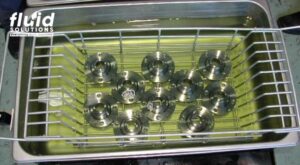Viscometers
Viscometers play a crucial role in industries where measuring the viscosity of liquids is essential. These instruments help quantify a fluid's resistance to flow, providing valuable insights into its consistency and behavior. By gauging viscosity, industries can ensure the optimal performance of various liquids, from oils and paints to food products. This information is vital for maintaining quality standards and optimizing manufacturing processes.
There are different types of viscometers designed to suit various applications. Rotational viscometers, capillary viscometers, and falling ball viscometers are among the common types. Rotational viscometers measure viscosity by determining the torque required to rotate a spindle in the fluid. Capillary viscometers assess viscosity by measuring the time it takes for a fluid to flow through a narrow tube. Falling ball viscometers utilize the descent of a ball through a liquid to gauge viscosity. Each type has its advantages, making it suitable for specific industries and viscosity ranges.


ATAGO VISCO-895
Lightweight digital viscosity meter made with aluminum that only requires small sample volume

ATAGO VISCO
Digital viscosity meter that is portable and compact that only requires small sample volume

ATAGO VISCO B
Digital Type-B (spindle) viscosity meter with simple set-up and operation
Can't find what you're
looking for?
Frequently Asked Questions
What is a Viscometer Used For?
A viscometer is a crucial instrument used to measure the viscosity of a fluid. Viscosity is the resistance of a fluid to flow, and viscometers provide valuable insights into the flow characteristics of liquids and semi-solids.
What is the Principle of a Viscometer?
The principle of a viscometer involves measuring the time it takes for a specific volume of fluid to flow through a defined passage. The viscosity is then calculated based on this flow time. Different types of viscometers employ variations of this principle, such as rotational or capillary methods.
What is a Viscometer in Chemical Engineering?
In chemical engineering, viscometers are used to characterize and analyze the flow behavior of fluids and semi-solids. This information is vital for designing and optimizing processes, ensuring the efficient handling of materials in chemical manufacturing.
What Are Viscometers in Laboratory, Food, and Chemistry?
Viscometers play a crucial role in laboratories, food industry, and chemistry. In laboratories, they are used to study the rheological properties of various substances. In the food industry, viscometers aid in quality control by measuring and ensuring the desired viscosity of food products. In chemistry, viscometers contribute to research and process optimization, providing essential viscosity data for diverse chemical substances.
Learn More
Get more information about Viscometers, Industrial Lubricants, and related topics from these articles.



